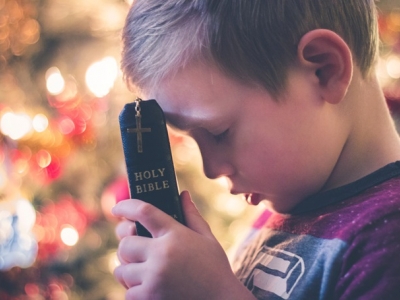Teaching Your Kids about Forgiveness
'Ultimately, our job is to keep pointing our kids to the forgiveness we are offered through Jesus, and to model that ourselves...'
We’ve all been on the receiving end of tears that have come from a toy being snatched, a sibling being pinched or someone telling on another. We’ve listened to both sides of the argument and then stood over the kids while they shook hands, said “I’m sorry” and “I forgive you”, then watch them go and play again.
Have you ever wondered what’s going on inside their heads at that point?
I hate them, why do I have to shake hands?
She hurt me!
Why do I have to say sorry… But I’m not sorry…
I suppose I did hit them… Are you ok?
OK, I don’t hurt anymore… Can we just play now?
So why do we do it? Why do get make kids go through this process and is it worth it?
What is this actually teaching them about forgiveness?
If we look at 1 John 1:9, it says,
If we confess our sins, he is faithful and just and will forgive us our sins and purify us from all unrighteousness.
Step 1 of forgiveness is actually admitting there’s something wrong to begin with… which can be hard for kids to realise. When there’s been some sort of conflict, each party needs to own up to whatever it is they’ve done. Some barriers to doing this for kids might be that they’re scared they will get in trouble, or they feel they’re the recipient of injustice, or they just don’t want to own up to something. John tells us though that we need to confess our sins – own up to them and say them to the person we have wronged – so that forgiveness can be offered.
Step 2 is to let the other person say, “I forgive you.” They need to offer forgiveness. John tells us that when we do this to God, he is faithful and just and forgives us. When the other person forgives them, this is a small sign of the bigger forgiveness that God has offered us in Jesus.
Step 3 is accepting this forgiveness. For kids this is the ‘shake hands’ bit. We’re friends again, we’ve made peace and we can go back to playing. This means that we don’t hold whatever the person did to us against them or make them pay it back somehow. If God acts justly and does not require us to pay him back, then we too must act in the same way towards others.
Now the younger a child is, the more likely this process of teaching them forgiveness needs to happen straight away, because in 5 minutes time, they’ll have moved on to their next game or toy and will have forgotten whatever just happened. As kids get older though, and as the conflicts they experience become more complicated, perhaps this process needs a little more time and a little more explanation, at your discretion. Ultimately, our job is to keep pointing our kids to the forgiveness we are offered through Jesus, and to model that ourselves.
I am not an expert in forgiveness by any stretch of the imagination. As adults, our conflicts are many and varied and complicated. In the end though, Jesus teaches us to pray that God would forgive us just as we forgive others (Matthew 6:12). This is both a powerful reminder of God’s generous forgiveness as well as a warning and perhaps even a rebuke if we need it, to ensure that we do indeed forgive those who wrong us*. We have plenty of opportunities to model this within our own families, with our parents, spouses and children.
Luke 7:36-50 presents a beautiful picture of what giving and receiving forgiveness looks like. The woman in the narrative accepts Christ’s forgiveness and she loves him all the more for it. So why do we teach forgiveness to our kids? To point them to the bigger picture of Jesus forgiving us. And hopefully setting them up for a lifetime of forgiving people the way Jesus wants us to.
*This does not mean that complete reconciliation in our relationships will happen instantly—or indeed always be possible in this age. This takes time and comes after the first step of forgiveness. In some cases, it may be that the relationship needs to take a different shape entirely. The good news for us is that we do find complete reconciliation with God in and through Jesus (Colossians 1:19-22).
Amy Brown loves Jesus, kids, friends and good coffee, and life is great whenever all those things combine! She currently lives in Newtown finishing off her studies at Moore Theological College, while also teaching young people about Jesus at St Swithun’s Anglican Church in Pymble.
For more articles from Growing Faith, subscribe to our monthly e-newsletter.
To hear about the latest books and resources from Youthworks Media, subscribe here.





